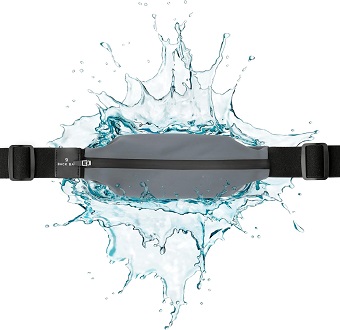Table of Contents
1. Introduction
As runners, we often focus on the intensity of our workouts and the dedication required to hit our goals. However, what many of us may overlook is the crucial role that post-run nutrition plays in our overall performance and recovery. Whether you’re a seasoned marathoner or just starting out on your running journey, understanding how to nourish your body after a run is essential for optimizing your results.
Proper post-run nutrition can help replenish glycogen stores, repair muscle damage, and reduce inflammation – all of which are key factors in maximizing recovery and improving performance for future runs. By paying attention to what you eat after a run and timing it right, you can support your body’s natural healing processes and enhance overall fitness gains.
2. Importance of post-run nutrition
After an invigorating run, the way you refuel your body is crucial for enhancing recovery and optimizing performance. Post-run nutrition plays a vital role in replenishing glycogen stores, repairing muscle tissue, and reducing inflammation. Including a balance of carbohydrates and protein in your post-run meal or snack can help kickstart these processes efficiently.
It’s not just about the quantity but also the quality of food you consume after a run. Opting for whole foods like fruits, vegetables, lean proteins, and complex carbohydrates can provide essential nutrients to support muscle repair and overall health. Timing is key when it comes to post-run nutrition – consuming a balanced meal or snack within 30 minutes to an hour after your run can make a significant difference in how quickly your body recovers from exercise-induced stress. Remember that every bite counts towards nourishing your body and helping you become a stronger, faster runner.
3. Recovery foods for runners
After an intense run, your body craves the right nutrients to aid in recovery and replenish energy stores. Opt for foods rich in protein and carbohydrates to support muscle repair and glycogen replenishment. Examples include a smoothie with Greek yogurt, berries, and banana to provide a good balance of macronutrients.
Another excellent option is chocolate milk, known for its perfect ratio of carbohydrates to protein essential for post-run recovery. Don’t forget about the importance of hydration; coconut water or a sports drink can help replace lost electrolytes and fluids. Including these recovery foods in your post-run routine will help you bounce back faster and stronger for your next run!
4. Timing of post-run nutrition
Timing of post-run nutrition is crucial for runners looking to optimize their recovery and performance. Consuming a combination of protein and carbohydrates within 30 minutes after a run can help replenish glycogen stores and repair muscle tissue. However, recent research suggests that the window for optimal post-run nutrition may be longer than originally thought, with some studies indicating benefits up to two hours after exercise.
It’s also important to consider the individual needs and timing preferences of each runner when planning post-run nutrition. Some athletes may find it challenging to eat immediately after a run due to digestive issues or personal schedules, in which case consuming a well-rounded meal within a couple of hours can still support recovery effectively. Ultimately, listening to your body’s cues and finding a routine that works best for you can make all the difference in maximizing the benefits of post-run nutrition.
5. Hydration tips for optimal recovery
Hydration plays a vital role in post-run recovery, helping your body replenish lost fluids and nutrients. Beyond simply drinking water, incorporating electrolytes like sodium and potassium can aid in restoring the body’s balance. One interesting tip is to consume hydrating foods such as water-rich fruits and vegetables to complement your fluid intake. These foods not only offer hydration but also essential vitamins and minerals that support recovery.
Monitoring your urine color can serve as a useful indicator of your hydration levels – aim for pale yellow to clear urine post-exercise. For optimal recovery, consider not only the quantity but also the quality of your hydration sources; sports drinks with added electrolytes might be beneficial during intense or long runs. Remember that staying hydrated is not just about consuming liquids after running but maintaining consistent hydration throughout the day to support overall health and performance.
6. Sample post-run meal ideas
After a grueling run, it’s crucial to refuel your body with the right nutrients for optimal recovery. Some post-run meal ideas include a hearty smoothie packed with fruits, leafy greens, and protein powder to replenish glycogen stores and repair muscles. Another tasty option is a quinoa salad with grilled chicken, avocado, and a sprinkle of nuts for a balanced mix of carbohydrates, healthy fats, and protein.
For those looking for quick post-run options on-the-go, consider grabbing a Greek yogurt parfait with berries and granola or a turkey sandwich on whole grain bread with some veggies on the side. These meals provide essential nutrients that aid in muscle repair and replenish energy stores without weighing you down. Mixing up your post-run meals keeps things exciting while ensuring your body gets what it needs to recover efficiently after each workout.
7. Conclusion: prioritizing recovery for running success
Prioritizing recovery is key to unlocking your full running potential. It’s not just about logging miles but also ensuring that your body has the necessary tools to rebuild and repair after each run. By focusing on recovery foods and timing, you can optimize muscle glycogen replenishment and protein synthesis, setting the stage for improved performance down the line.
Remember, recovery isn’t a one-size-fits-all solution. Experiment with different post-run nutrition strategies to find what works best for you personally. Whether it’s a protein-packed smoothie or a balanced meal rich in carbohydrates and lean proteins, listen to your body’s cues and adjust accordingly. Ultimately, by giving recovery the attention it deserves, you’ll be able to bounce back faster from tough workouts and races, paving the way for sustained running success.















